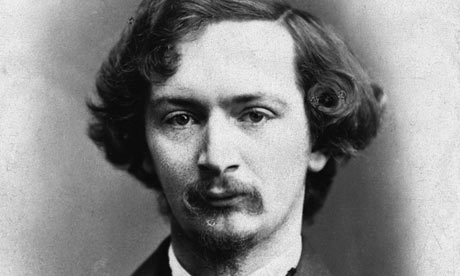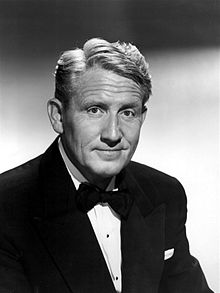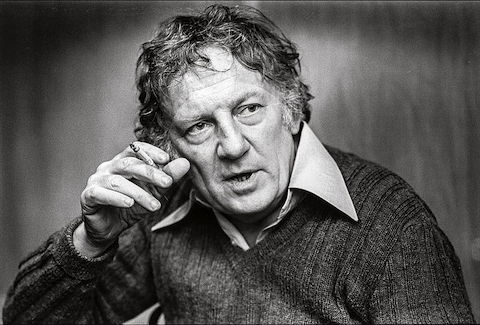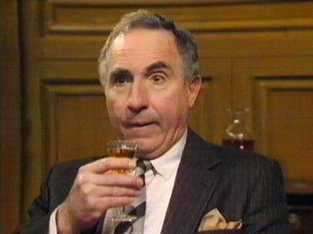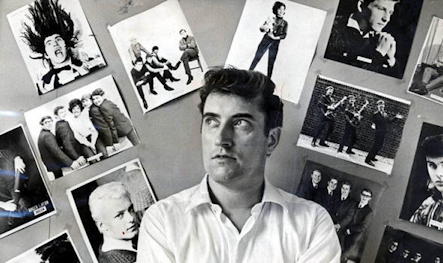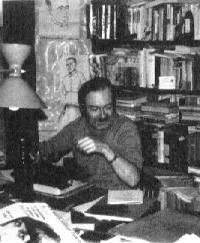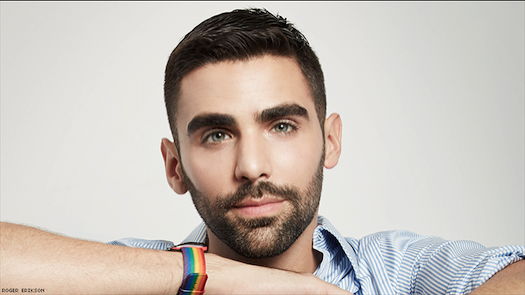|
presents THIS DAY IN GAY HISTORY based on: The White Crane Institute's 'Gay Wisdom', Gay Birthdays, Gay For Today, Famous GLBT, glbt-Gay Encylopedia, Today in Gay History, Wikipedia, and more …
Collected by Ted April 5 [{(o)}]|[{(o)}]|[{(o)}]|[{(o)}]| [{(o)}]|[{(o)}]
1837 – Algernon Charles Swinburne (d.1909); A Victorian era English poet, his poetry was highly controversial in its day, much of it containing recurring themes of sadomasochism, death-wish, Lesbianism and irreligion. Swinburne had a striking appearance; he was very short and thin, with a huge head and large quantities of flame-red hair. He had a nervous temperament, could behave erratically, and was subject to tremors. He had a lively interest in flagellation—a taste probably acquired at Eton, and he shared his sexual interests with, among others, Lord Houghton, who had amassed a large library of erotica. For his own entertainment, Swinburne composed flagellation sketches, farcical novels, and reviews of nonexistent French poets. He tried to publish some of these works, but primarily he circulated them among his friends—who included Dante Gabriel Rossetti, his brother William Rossetti, and Edward Burne-Jones. His Poems and Ballads scandalized Victorian critical and moral opinion and was withdrawn from circulation by its publisher. The volume included "Dolores," which glorified masochism, "Hermaphroditus," which exhibited Swinburne's lasting interest in bisexuality, and "Anactoria," which glorified lesbianism in an address of Sappho to her lover. His friendships with George Powell and Simeon Solomon encouraged his interest in same-sex sexuality, though he was at times ambivalent about what he called Solomon's "Platonism." But we do know that he and gay painter Simeon Solomon used to chase each other naked through the poet Rossetti's house By the late 1860s, Swinburne had become addicted to alcohol, and it quickly undermined his health. His alcoholic sprees also began to lose him friends. In 1879, Theodore Watts (later Watts-Dunton), a solicitor and minor writer, established Swinburne in his house in Putney outside London. Watts tactfully weaned Swinburne from alcohol and from those of his friends who had encouraged him to drink. Though the household treatment at Putney might be thought stifling, Watts undoubtedly saved Swinburne's life. Swinburne continued to write until his death thirty years later.
1895 – Playwright Oscar Wilde lost his criminal libel case against the Marquess of Queensberry, who'd accused the writer of of being gay.
1900 – Spencer Tracy (d.1967) was an American actor. Respected for his natural style and versatility, Tracy was one of the major stars of Hollywood's Golden Age. In a screen career that spanned 37 years, he was nominated for nine Academy Awards for Best Actor and won two, sharing the record for nominations in this category with Laurence Olivier. Like Olivier, Tracy was reportedly bisexual. Spencer Tracy was a midwesterner from a lace-curtain Irish-American background who developed a taste for acting at school, and after a First World War spell in the US Navy, a year at drama school, and various odd jobs, he spent eight years developing his craft on Broadway. A fellow Irishman, John Ford, spotted him playing a condemned murderer on Broadway in 1930 and brought him to Hollywood to play another convict in Up the River. Twenty-eight years later he gave one of his last great performances in Ford's The Last Hurrah. Though a confident professional, he was a difficult, guilt-ridden man, alcoholic and bisexual, the two sides of his personality perhaps expressed in the 1941 Dr Jekyll and Mr Hyde. Ex-rent boy, Scotty Bowers, in his book Full Service, tells of how he and a very drunk Tracy ended up naked in bed together, and how he had suggested to Tracy that we should try to get some sleep, but he wasn't ready for that. Instead, he lay his head down at my groin, took hold of my penis and began nibbling on my foreskin. This was the last guy on earth that I expected an overture like that from, but I was more than happy to oblige him and despite his inebriated state we had an hour or so of pretty good sex.
The next morning there wasn't even the slightest hint of how drunk he'd been, that he'd pissed in the corner of the bedroom, or that we'd had sex together. He didn't say a word about it. It was as though none of it ever happened. That was the first of many sexual encounters I had with Spence. Sometimes I would go to his place at five in the afternoon and sit around the kitchen table with him until two in the morning as he drank himself into a stupor. Then he would be ready for a little sex. Despite everything, he was a damn good lover. The great Spencer Tracy was another bisexual man, a fact totally concealed by the studio publicity department. Tracy found his greatest professional success and most profound personal experience in his partnership on and off screen with Katharine Hepburn. She was the Ivy League-educated, upper-middle-class liberated sophisticate to his self-made, aggressively male rough diamond, and they sparred together in nine films, beginning with Woman of the Year (1942).
Crompton received an M.A. in mathematics from the University of Toronto in 1948 and a Ph.D. in English from the University of Chicago in 1954. After teaching mathematics at the University of British Columbia and the University of Toronto, he joined the English department at the University of Nebraska-Lincoln in 1955, retiring in 1989. During his career, he gained an international reputation as a scholar of the works of George Bernard Shaw. In 1970, Crompton taught a gay studies class at UNL, the second such course offered in the United States, an action that raised LGBT awareness in academia, Nebraska, and the nation. The course provoked one Nebraska state legislator into introducing a bill that would ban any teaching on homosexuality in any Nebraska public college; the bill was not passed into law. However, Crompton decided not to offer the course again, but continued to pursue the subject through research and publication. In the early 1970s, Crompton became the faculty advisor for the Gay Action Group, forerunner of today's UNL Queer Ally Coalition, and also helped found the UNL Homophobia Awareness Committee, which became the Committee on Gay, Lesbian, Bisexual, and Transgender Concerns. In 1974, Crompton co-founded the Gay and Lesbian Caucus of the Modern Language Association. In 1978, Crompton scored a literary coup by editing and publishing in the Journal of Homosexuality the full text of "Offences Against One's Self: Paederasty," a never-before published 1785 essay by utilitarian philosopher Jeremy Bentham. Bentham had suppressed the essay during his lifetime, for fear of public outrage at his views on liberalizing the laws concerning homosexual activity. Crompton received many awards and honors during his career, including the Bonnie Zimmerman and Vern L. Bullough Prize of the Foundation for the Scientific Study of Sexuality award for 2003 for his book Homosexuality and Civilization, which covers 2500 years of world history. In 2009, a scholarship was established at UNL in Crompton's name for students working toward "a more just, inclusive society for the LGBTQ community"; the first award to a student was made in 2013. At the time of his death, Crompton, who had retired to California, was Professor Emeritus of English at UNL. He was survived by his husband of forty years, Luis Diaz-Perdomo, also a former UNL faculty member who served many years with Counseling and Psychological Services at UNL and facilitated the Gay Men’s Discussion Group.
The book for which Claus is best known in the United States is The Sorrow of Belgium (1983), his unequivocal, unvarnished look at a national psyche at war with itself. Claus's novel, semiautobiographical by his own admission, tells of a boy who initially welcomes the Nazi invasion of World War II because of his negative perception of the French, which is based on previous encounters in his homeland. His opinion does not begin to change until the tides of war turn in favor of the Allies. The boy, like many of his countrymen, has to live with that self-knowledge for the rest of his life. Much of Claus's writing, critics have said, reflects a similar preoccupation with hypocrisy, guilt, and shame, particularly as he experienced it as a Roman Catholic growing up in Flanders. His writings, especially poetry and plays, often dealt explicitly and uncompromisingly with sex, adultery, incest, homosexuality, and other sensitive topics. He directed a few films and plays, including Sugar (1959), which he also wrote. Claus won several European literary prizes, but only a few of his works appeared in English translation, including the novel The Duck Hunt (1955), Greetings: Selected Poems (2004), and The Sacrament and Other Plays of Forbidden Love. (2007).Most prolific as a dramatist, Claus wrote 35 original pieces and 31 translations from English, Greek, Latin, French and Spanish plays and novels. His dramatic sketch Masscheroen was first staged at Knokke Casino and featured an all-nude cast: three naked men were given the task of portraying the Christian Holy Trinity of God the father, God the son, and the Holy Spirit; the work also made light of the Holy Virgin, a Belgian saint, and the Three Wise Men. Attacked as blasphemous, the light-hearted play's performance triggered a legal case in which Claus was prosecuted: convicted on charges of public indecency, Claus was ordered to pay a ten-thousand-Belgian franc fine and serve a four-month prison sentence. The prison term was reduced to a suspended sentence after a public outcry. Claus suffered from Alzheimer's disease and requested his life to be terminated through euthanasia, a legal procedure in Belgium, at the Middelheim Hospital in Antwerp on 19 March 2008
1929 – Nigel Hawthorne, CBE was a renowned English actor (d. 2001). He was born in Coventry, Warwickshire, England, although he grew up in South Africa, where he was educated by the Christian Brothers. He returned to the United Kingdom in the 1950s to pursue acting. In a long and varied career, which began with an advert for Mackeson stout and a bit part in Dad's Army, his most famous roles were as Sir Humphrey Appleby in the TV series Yes, Minister (and its sequel, Yes, Prime Minister), for which he won four BAFTA awards, and as King George III in Alan Bennett's stage play The Madness of George III (Olivier Award) and the film adaptation, for which he received an Oscar nomination. He was appointed a CBE in 1987, and was knighted in 1999. An intensely private individual, he was 'deeply saddened' when he was involuntarily outed as gay in the run-up to the Oscars but nevertheless attended the ceremonies with his long-time partner Trevor Bentham, and spoke openly about being gay in interviews and his autobiography, Straight Face, which was published posthumously. For 22 years, he had been the partner of Trevor Bentham. They met in 1968 when Bentham was stage-managing the Royal Court Theatre. From 1979 until Hawthorne's death in 2001, they lived together in Radwell near Stotfold in Hertfordshire, England. The two of them became fund raisers for the North Hertfordshire hospice and other local charities. He had several surgeries for pancreatic cancer, although his immediate cause of death was from a heart attack, aged 72. His partner of 22 years, Trevor Bentham, survived him.
1929 – Joe Meek (d.1967), born Robert George Meek in Newent, Gloucestershire, was a pioneering English record producer and songwriter acknowledged as one of the world's first and most imaginative independent producers . His most famous work was The Tornados' hit Telstar (1962), which became the first record by a British group to hit #1 in the US Hot 100. A stint in the Royal Air Force as a radar operator, spurred a life-long interest in electronics and outer space. From 1953 he worked for the Midlands Electricity Board. He used the resources of his company to develop his interest in electronics and music production, including acquiring a disc-cutter and producing his first record. He left the electricity board to work as a sound engineer at Radio Luxembourg. Despite not being able to play a musical instrument or write notation, Meek displayed a remarkable facility for producing successful commercial recordings. To compose, he was dependent on musicians, who would transcribe his singing (or recordings of it). He worked on 245 singles, of which 45 were major hits (top fifty or better). He pioneered studio tools such as artificial multi-tracking on one- and two-track machines, close miking, direct input of bass guitars, the compressor, and effects like echo and reverb, as well as sampling. At a time when studio engineers were assiduously trying to maintain clarity and fidelity, Meek was producing everything on the three floors of his 'home' studio and was never afraid to distort or manipulate the sound if it created the effect he was seeking. For John Leyton's hit song Johnny Remember Me he placed the violins on the stairs, the drummer almost in the bathroom, and the brass section on a different floor entirely. Although he turned down opportunities to work with David Bowie, The Beatles and Rod Stewart, Meek did work with a host of other artists including Gene Vincent, Billy Fury, Petula Clark, Shirley Bassey, Tommy Steele and many more. Meek was obsessed with the occult and the idea of 'the other side'. He would set up tape machines in graveyards in a vain attempt to record voices from beyond the grave. In particular, he had an obsession with Buddy Holly and other dead rock and roll musicians. His efforts were often hindered by his paranoia (Meek was convinced that Decca Records would put hidden microphones behind his wallpaper in order to steal his ideas), drug use and attacks of rage or depression. His then-illegal homosexuality put him under further pressure; he had been charged with 'importuning for immoral purposes' in 1963 and was consequently subjected to blackmail. In January of 1967, police in Tattingstone, Suffolk, discovered a suitcase containing the mutilated body of Bernard Oliver, an alleged rent boy who had previously associated with Meek. According to some accounts, Joe became concerned that he would be involved in the investigation when the London police stated that they would be interviewing all known homosexuals in the city. On February 3, 1967, the eighth anniversary of Buddy Holly's death, Meek killed his landlady Violet Shenton and then himself with a single-barrelled shotgun that he had confiscated from his protegé, former Tornados bassist and solo star Heinz Burt at his Holloway Road home/studio. Meek had kept it under his bed, along with the shells. As the gun had been registered to Burt, he was questioned intensively by police, before being eliminated from their enquiries.
1936 – Pierre Hahn (d.1981) was one of the earliest gay militants in contemporary France and an amateur historian who received the first doctorate given in France for work in the history of homosexuality. Pierre Hahn was nineteen when he contacted André Baudry, the former seminarian who had just begun publishing Arcadie, a monthly "homophile" review and would soon found an association with the same name. Invited to participate, Hahn wrote numerous articles (under the pseudonym André Clair) on a wide variety of subjects of interest to the homosexual readership, while simultaneously embarking on a career in journalism. Under pressure from his father, however, Hahn briefly entered a psychiatric hospital at the age of twenty in a vain attempt to "cure" his homosexuality. The experience left him with a life-long distrust of the medical profession because of the way it had been treating homosexuals since the nineteenth century. By the mid-1960s Hahn was evolving beyond Baudry's position that homosexuals should show themselves "respectable" and "dignified" in order to win the tolerance of society. Hahn later explained that he had begun a serious relationship with another man and "like all people who are in love, I wanted to shout it from the rooftops; I also wanted to rehabilitate something [homosexuality] that was held in contempt or treated with condescension." In a public talk at Arcadie, he compared the discrimination against homosexuals to racial discrimination, a point of view that shocked some of his more conservative listeners. Guy Hocquenghem (a leading gay militant of the 1970s, but at the time a 21-year-old Trotskyite who carefully hid his own homosexuality from his homophobic "comrades" on the political left) later recalled Hahn's appearance at one meeting in 1967: In late 1970, there emerged a small radical group of Arcadie members that undertook a number of commando actions, most notably the disruption of an anti-abortion meeting in Paris on March 5, 1971, in which Hahn participated. Five days later, the same group sabotaged a live radio broadcast on the theme "Homosexuality, This Painful Problem." They stormed the stage. Hahn, who was taking part in the program as an invited journalist and (presumably heterosexual) "expert" on homosexuality, had arranged their presence That evening the they founded the Homosexual Front for Revolutionary Action (Front Homosexuel d'Action Révolutionnaire, or FHAR). Radical gay liberation had come to France. After FHAR's collapse in early 1974, Hahn remained active in the gay movement. He had also begun research into the gay past. One former gay militant, Alain Huet, remembers Hahn as "a living homosexual encyclopedia". In 1979 Hahn published Nos Ancêtres les Pervers (Our Ancestors The Perverts), in which he tried to demonstrate how, by repressing same-sex activity in eighteenth- and nineteenth-century Paris, policemen and doctors had produced the modern homosexual as a distinct category of man. In late 1980, a board of examiners at the University of Paris-VIII (Vincennes) awarded Hahn a doctorate in philosophy for his work on "the birth of homosexuality," earning the degree on the basis of the work that he had already published in the form of books and articles. By then Hahn had taken to drinking heavily. Without a steady job, he found it difficult to make a living and was deeply in debt. He was also infatuated with a young Moroccan, who took Hahn's money and gave little in return. Hahn committed suicide on February 19, 1981. Gay militants had to take up a collection to pay for the burial. The card on one of the two wreaths at the funeral was an implicit acknowledgment of his historical role in launching gay liberation in France: "To Pierre Hahn, from his friends in the French and foreign homosexual movements."
1939 – Massachusetts requires notice to police whenever someone convicted of sodomy is released from prison.
1982 – Newsweek Magazine reports on "Gays on Campus" which highlights how accepted gay organizations and lifestyles are on campuses around the county.
1982 – Thomas Hitzlsperger is a German director of football and a former footballer who played as a midfielder. Since February 2019, he has been the head of sport of VfB Stuttgart. Hitzlsperger began to play football at Forstinning, and later he joined the youth team of Bayern Munich, and in 2000 he moved to Aston Villa. Hitzlsperger, who got engaged to his high school sweetheart, broke up with her shortly before the scheduled wedding ceremony six years ago. He was no longer certain of his sexual orientation. In an interview, he stated, "I finally figured out that I desired to be with a man." The former world champion, who performed in the 2006 Global Cup and the 2008 European Championship, continues that he no longer had to lie about his sexuality and that teammates sooner or later stopped asking about his lack of a girlfriend. "However, the crucial aspect for me is to show that being a homosexual soccer participant is something that is normal. The perceived contradiction between playing football, a man's recreation, and being gay is nonsense. I don't think anyone has ever walked away from a game with me wondering if there's something wrong or 'too smooth' with my game," he said. In January 2022, Hitzlsperger told ARD, that a "collective coming out" of gay footballers could be a solution to their problems of hiding their sexuality. Hitzlsperger took the example of 125 Catholic priests in Germany who decided to come out at once.
1991 – Phillip Picardi is an American journalist and editor. He is the former editor-in-chief of Out. His career in journalism began at Teen Vogue. He also worked for Refinery29 and Allure. Picardi grew up in Boston to a Catholic family. Picardi attended Central Catholic High School, where in 2008 he was one of the founders of a now-annual student fundraiser called Catwalk4Cancer; the 2017 event raised more than $250,000. After graduating from high school, Picardi attended college at New York University. Picardi started his publishing career as an intern at Teen Vogue. He then served as online beauty editor at Teen Vogue before becoming senior beauty editor at Refinery29 in September 2014. At Refinery29 he worked for Mikki Halpin, whose influence as well as Picardi's personal experiences led to a growing interest in political engagement alongside his work on beauty. Speaking to The Guardian, he said his experience growing up gay in a Catholic family meant "I can certainly relate to what it feels like to be underrepresented or even marginalized. I took sex ed classes and there was no mention of homosexuality. Or I would sit in religion class and be told my life was a sin." Since June 2020, Picard has hosted a podcast about this subject called Unholier Than Thou, part of the Crooked Media podcast network. In March 2017, his role at Condé Nast expanded to become as digital editorial director for Them, the LGBT magazine as well as Teen Vogue. Under Picardi's leadership, Them has also seen a significant rise in web traffic: April 2017 had a 53% increase over the prior year (6.9 million over 4.5 million in April 2016). He left the magazine and Condé Nast in August 2018. In August 2018, Pride Media Inc. announced Picardi as the new editor-in-chief of Out. Picardi was let go from Out in December 2019, describing it as “the most complex chapter of my career so far”.
[{(o)}]|[{(o)}]|[{(o)}]|[{(o)}]| [{(o)}]|[{(o)}] |
